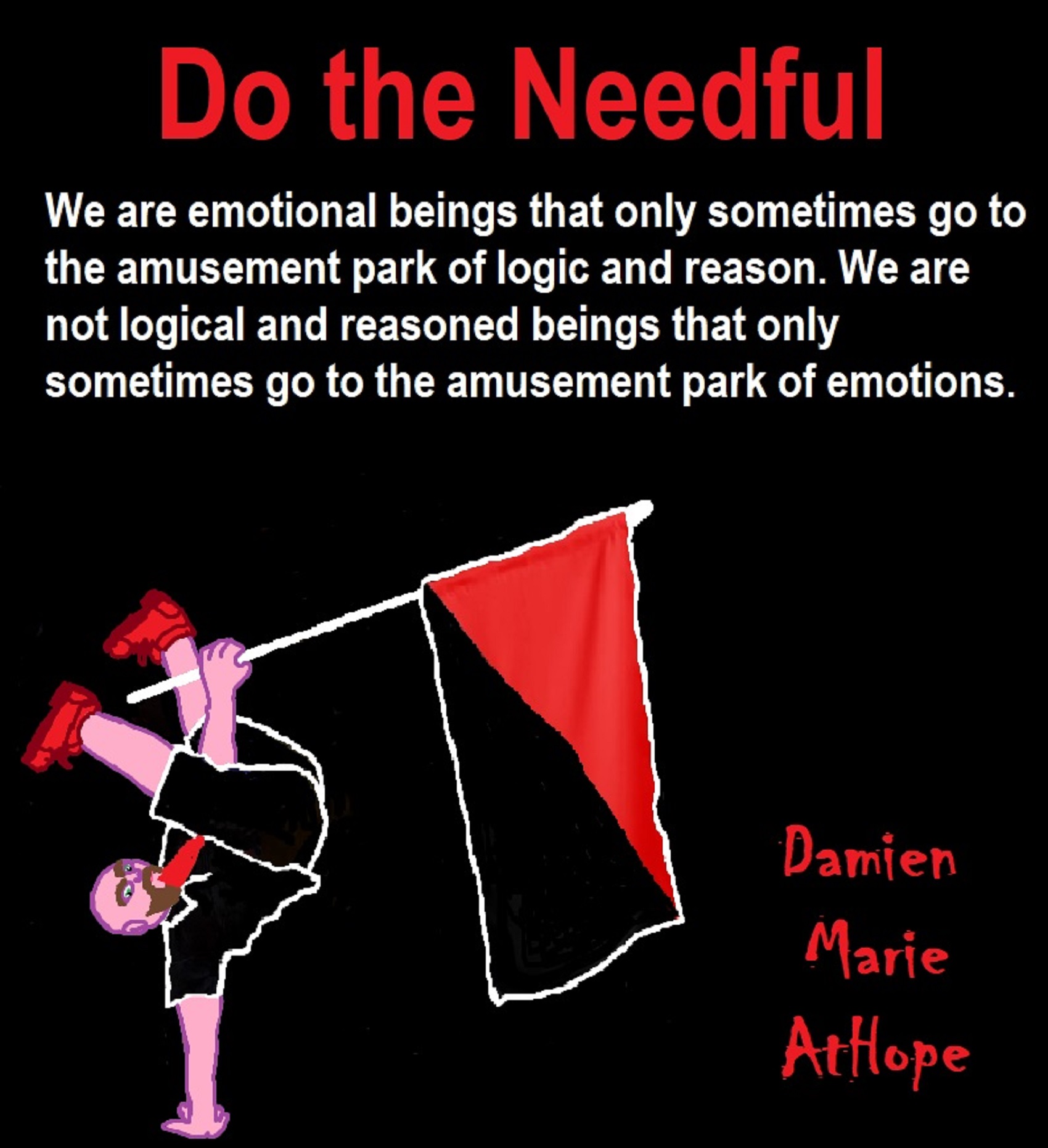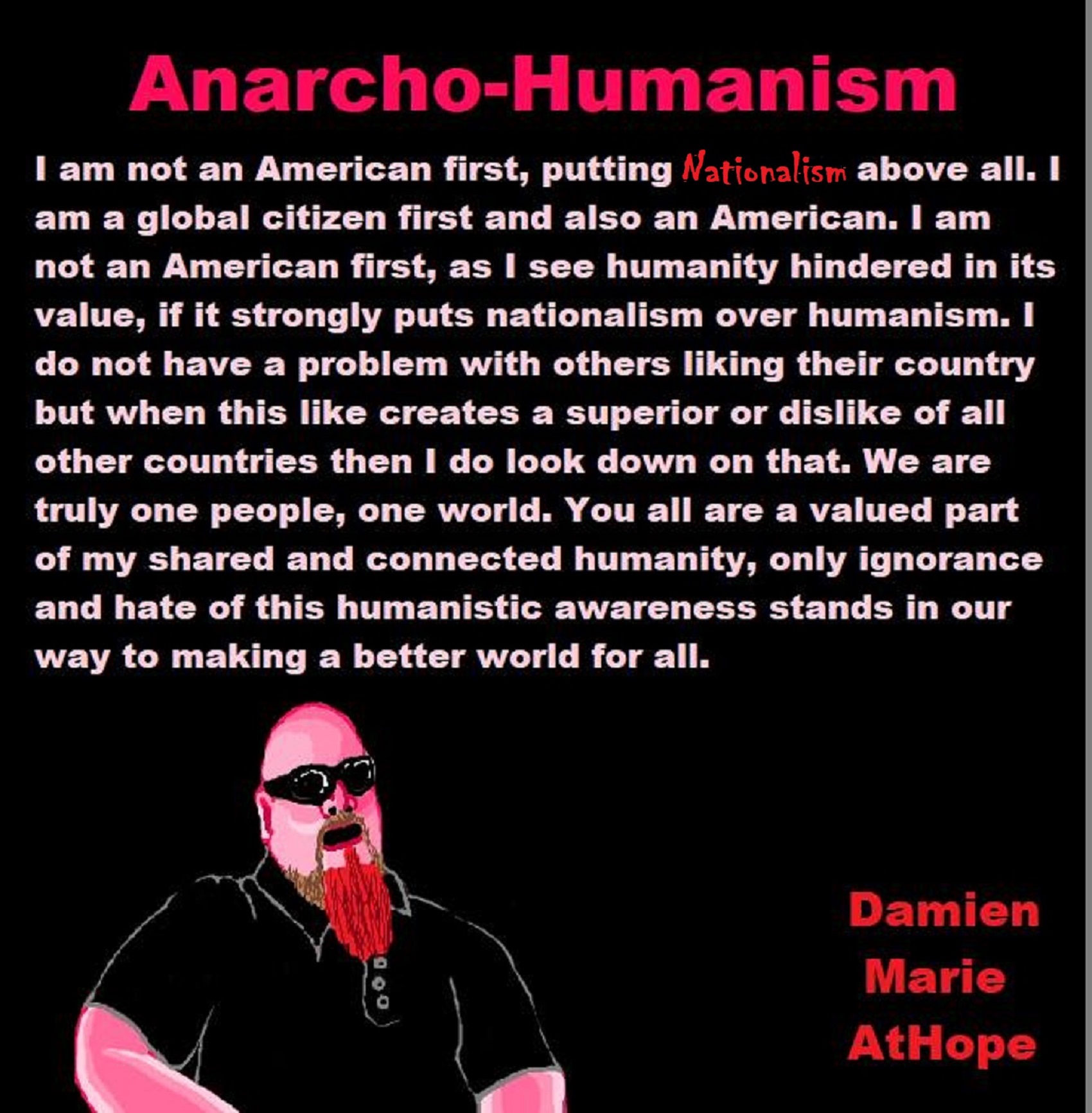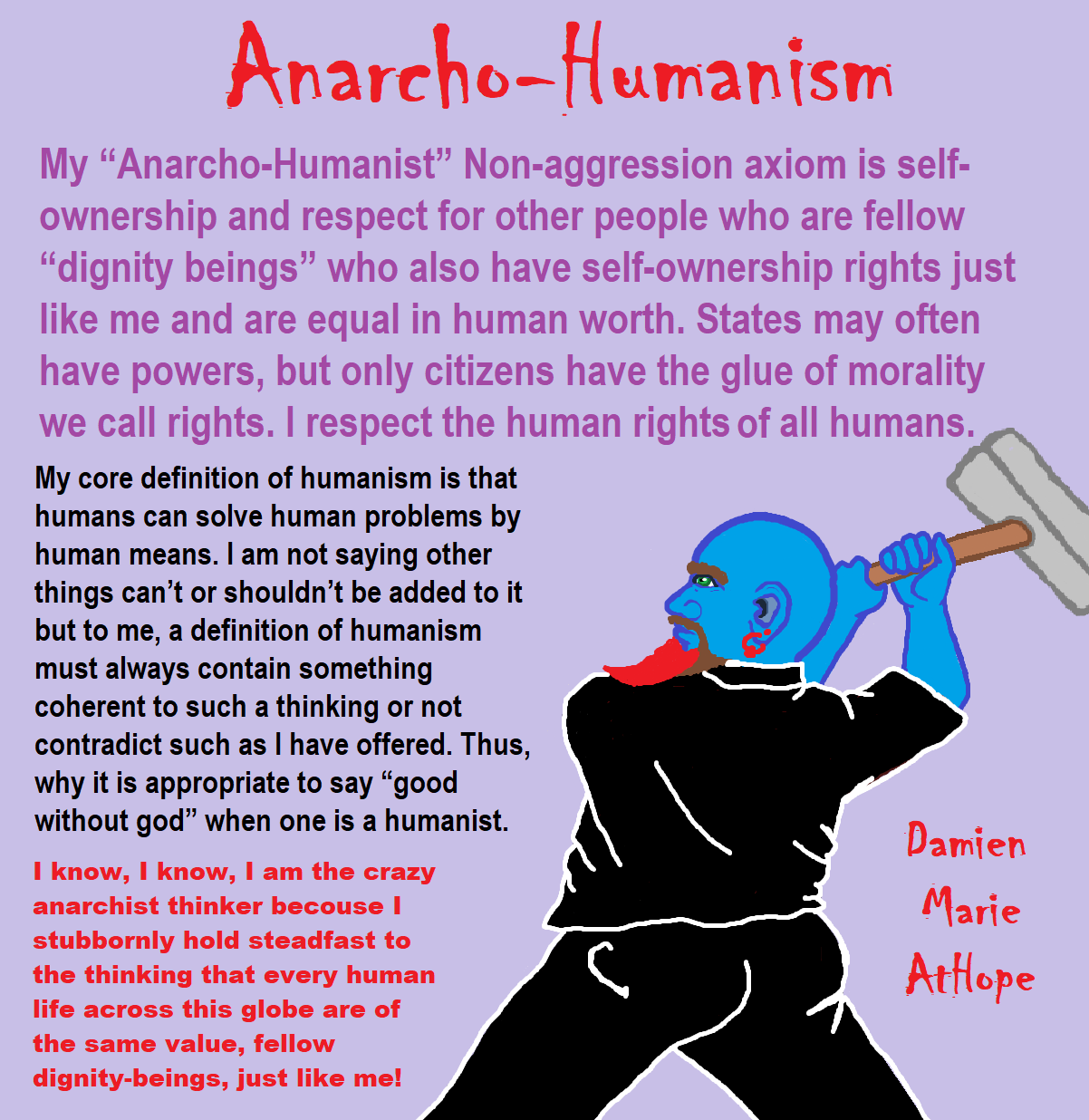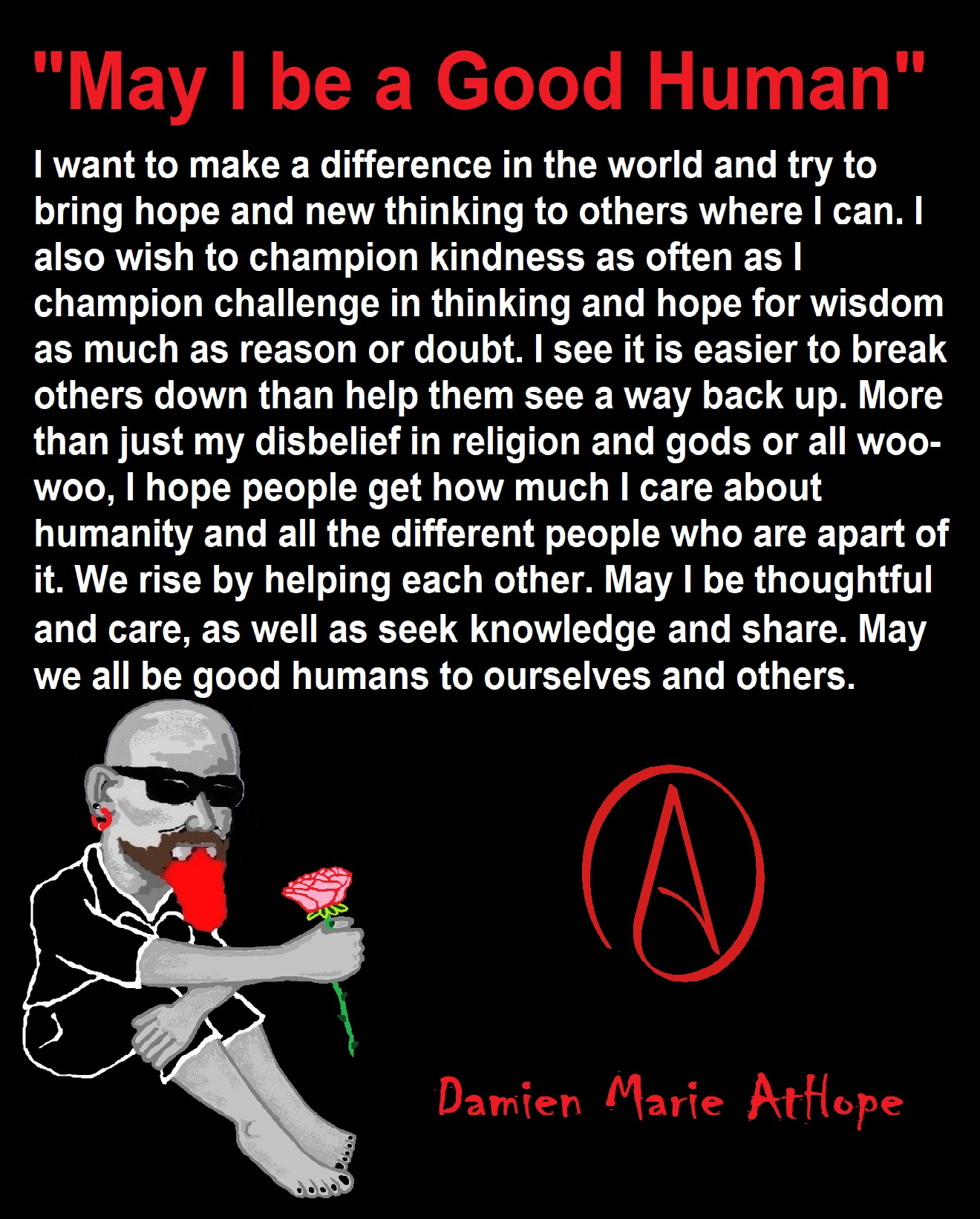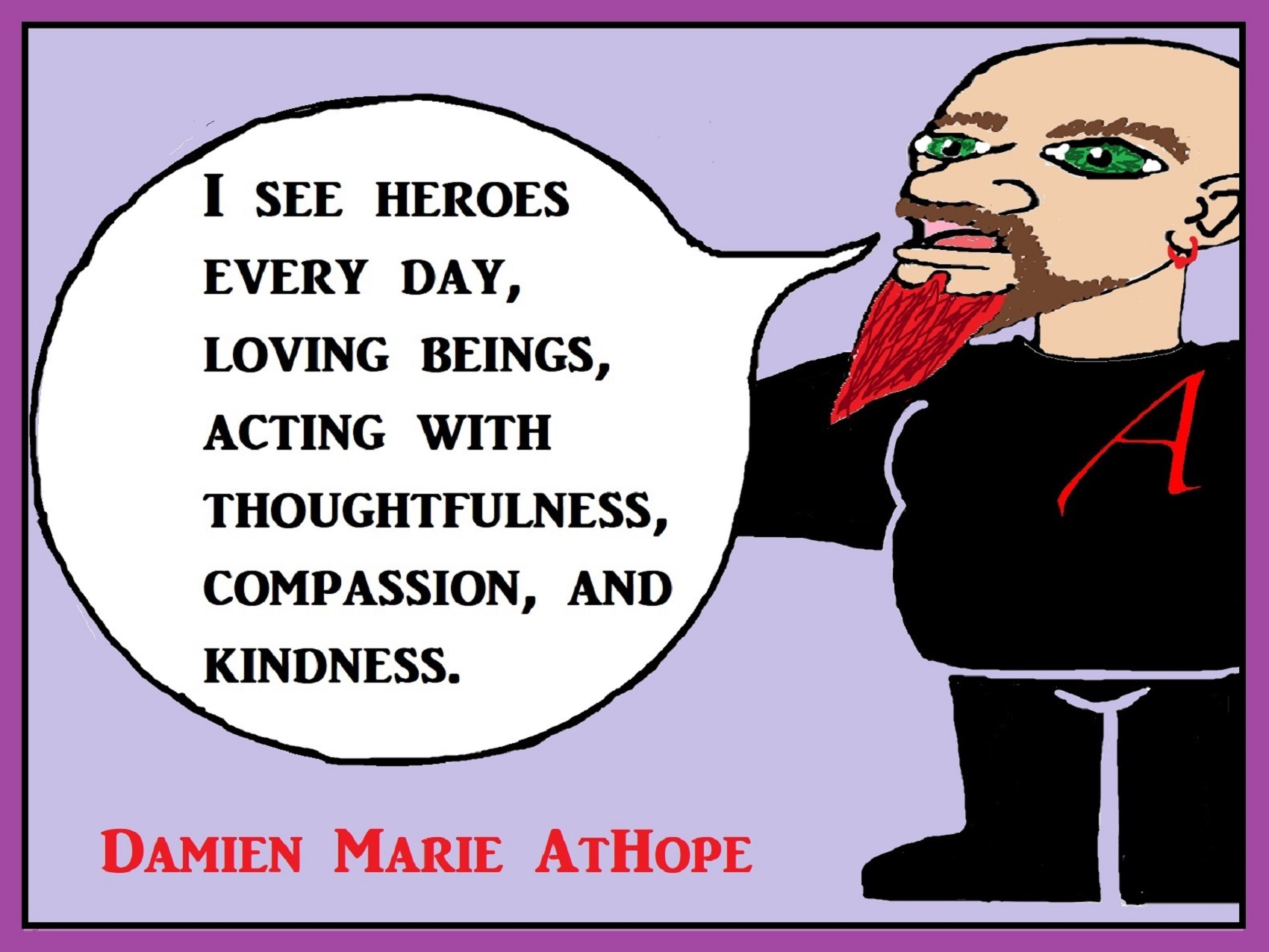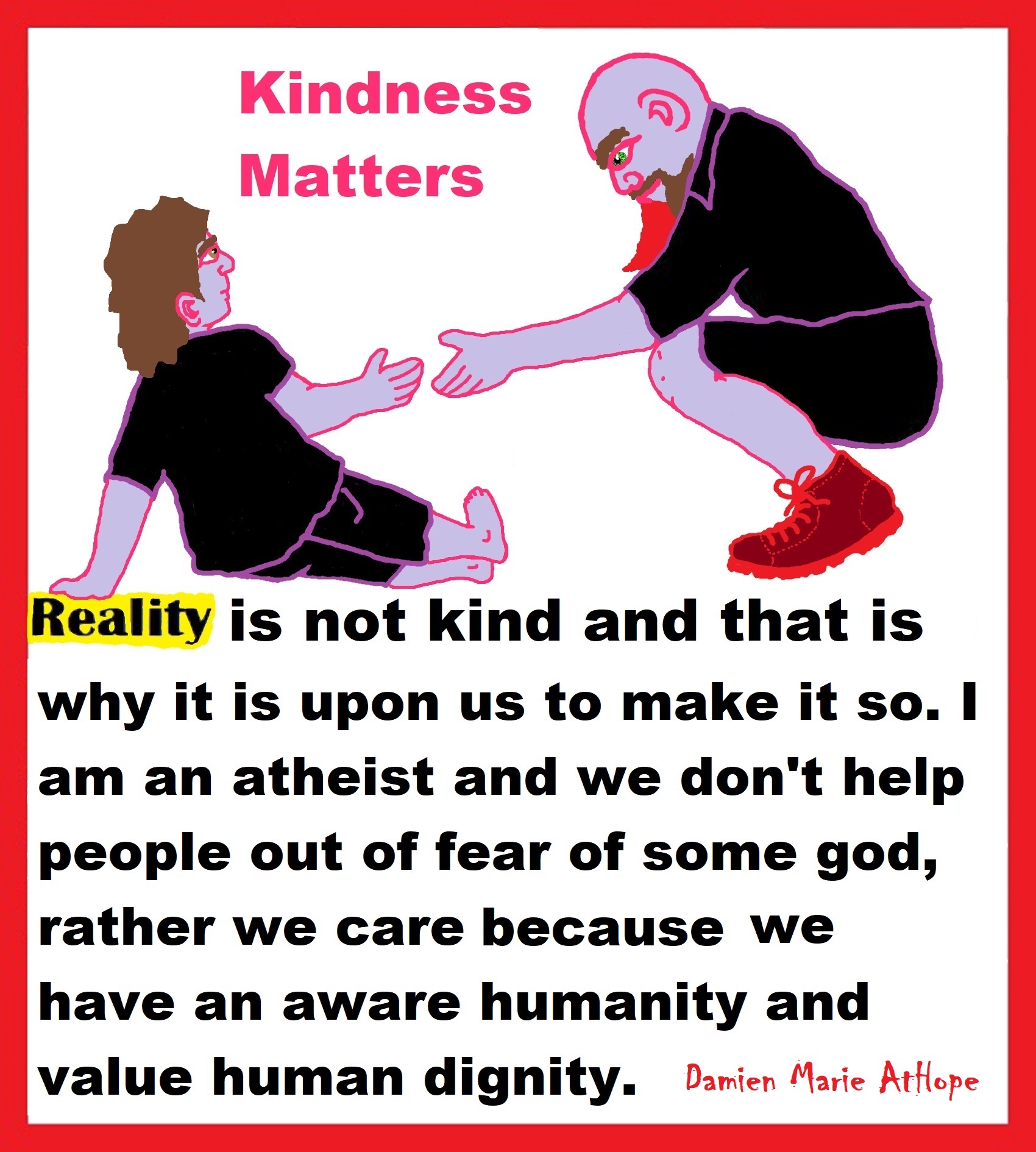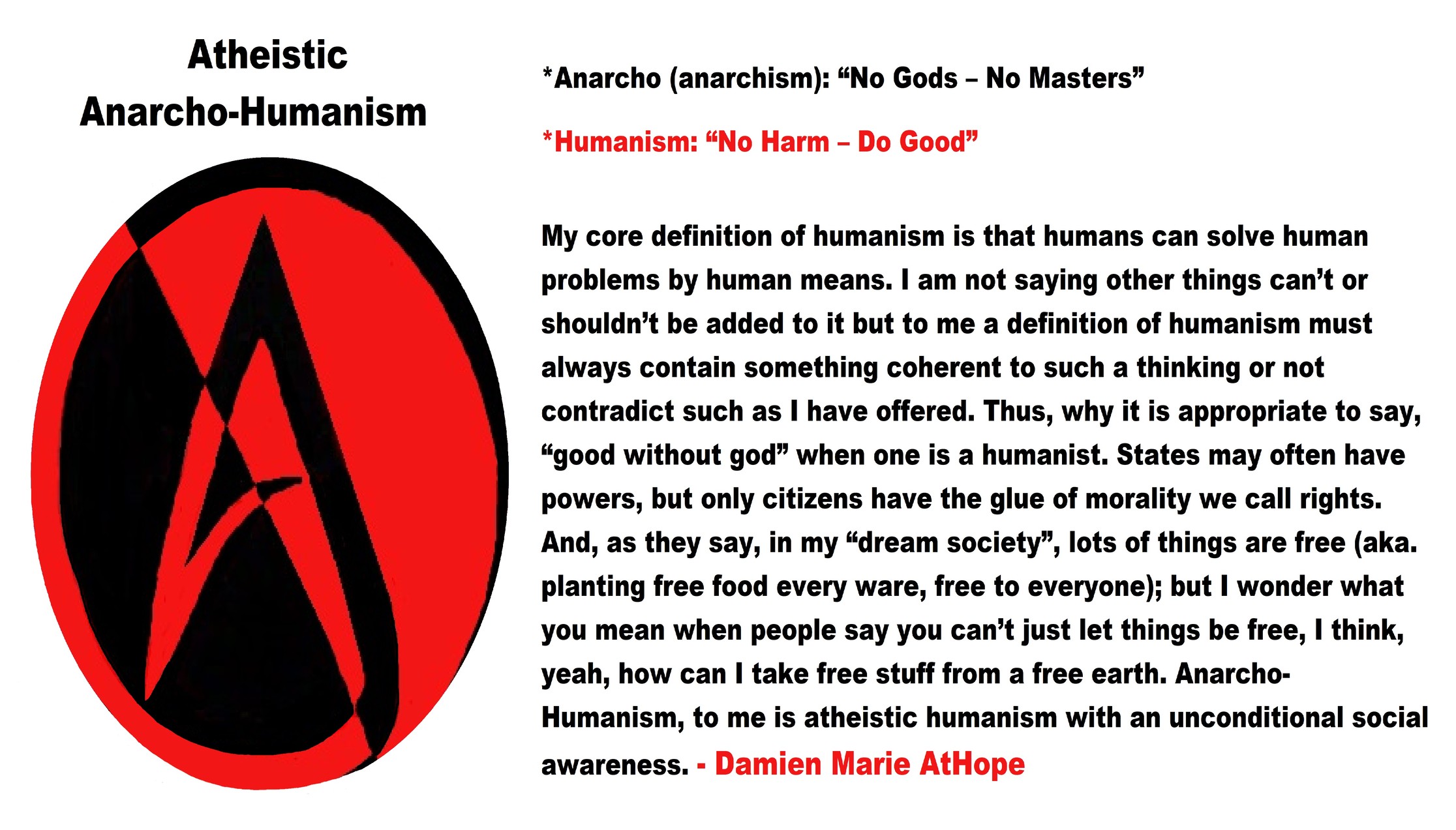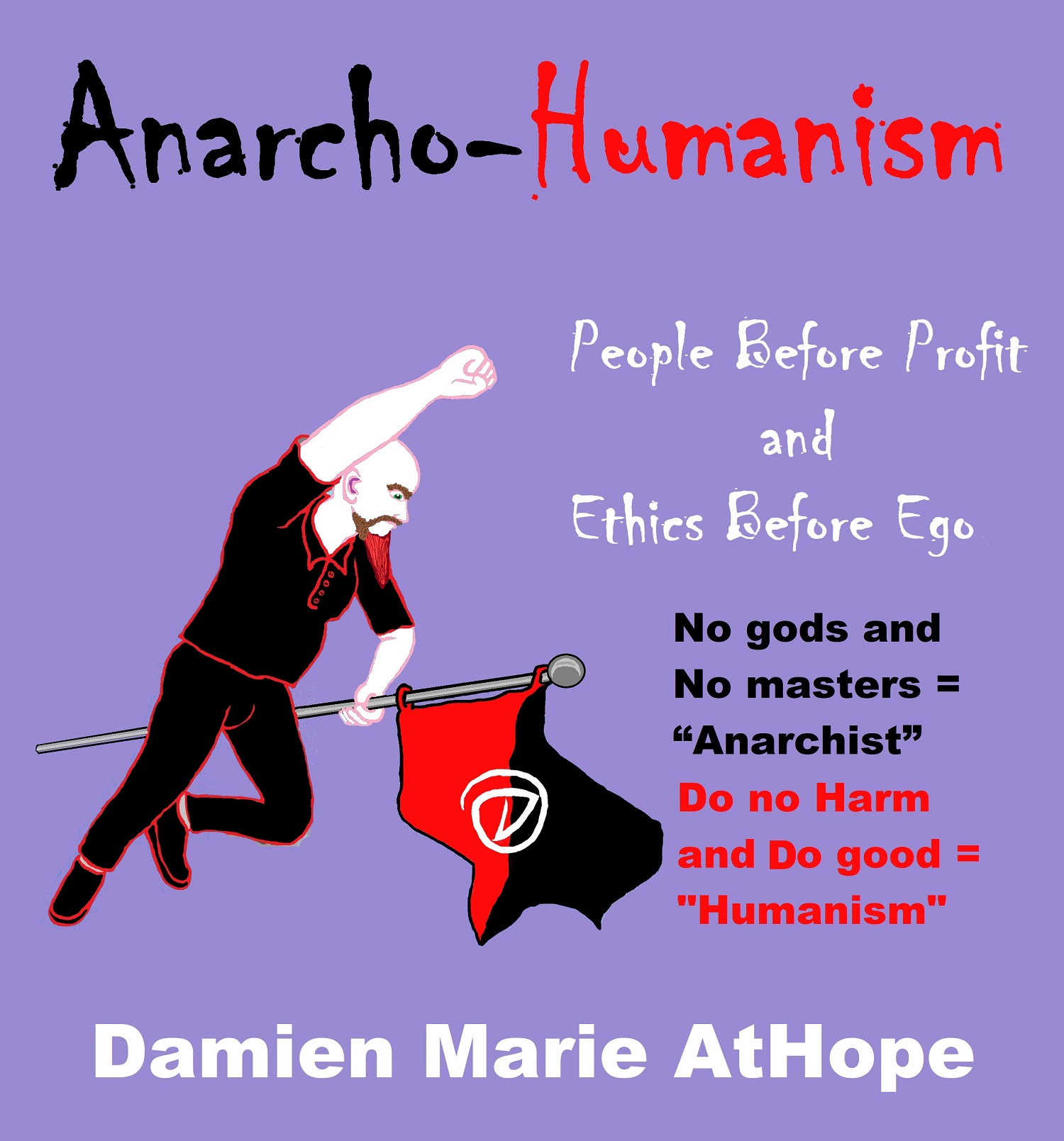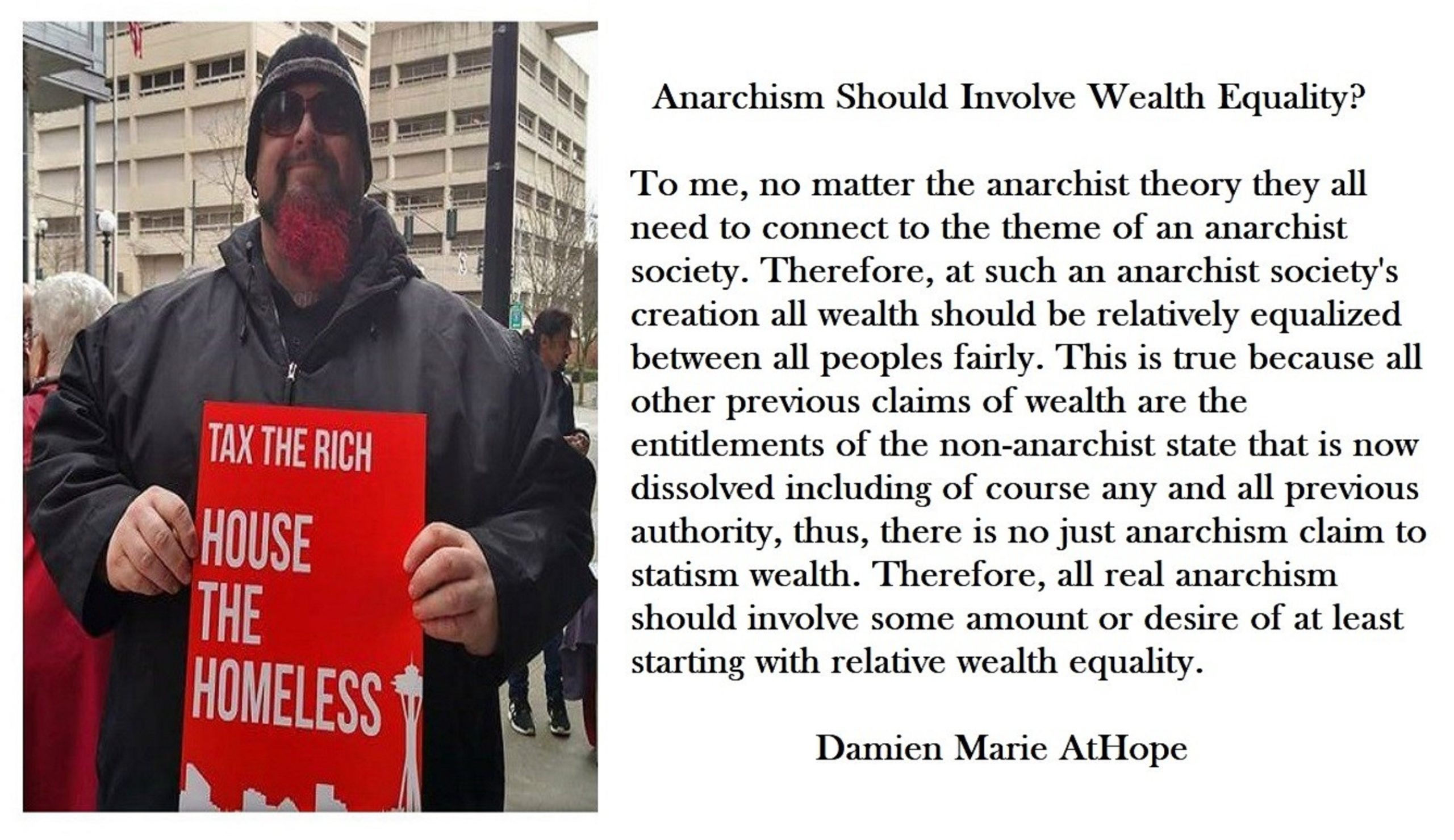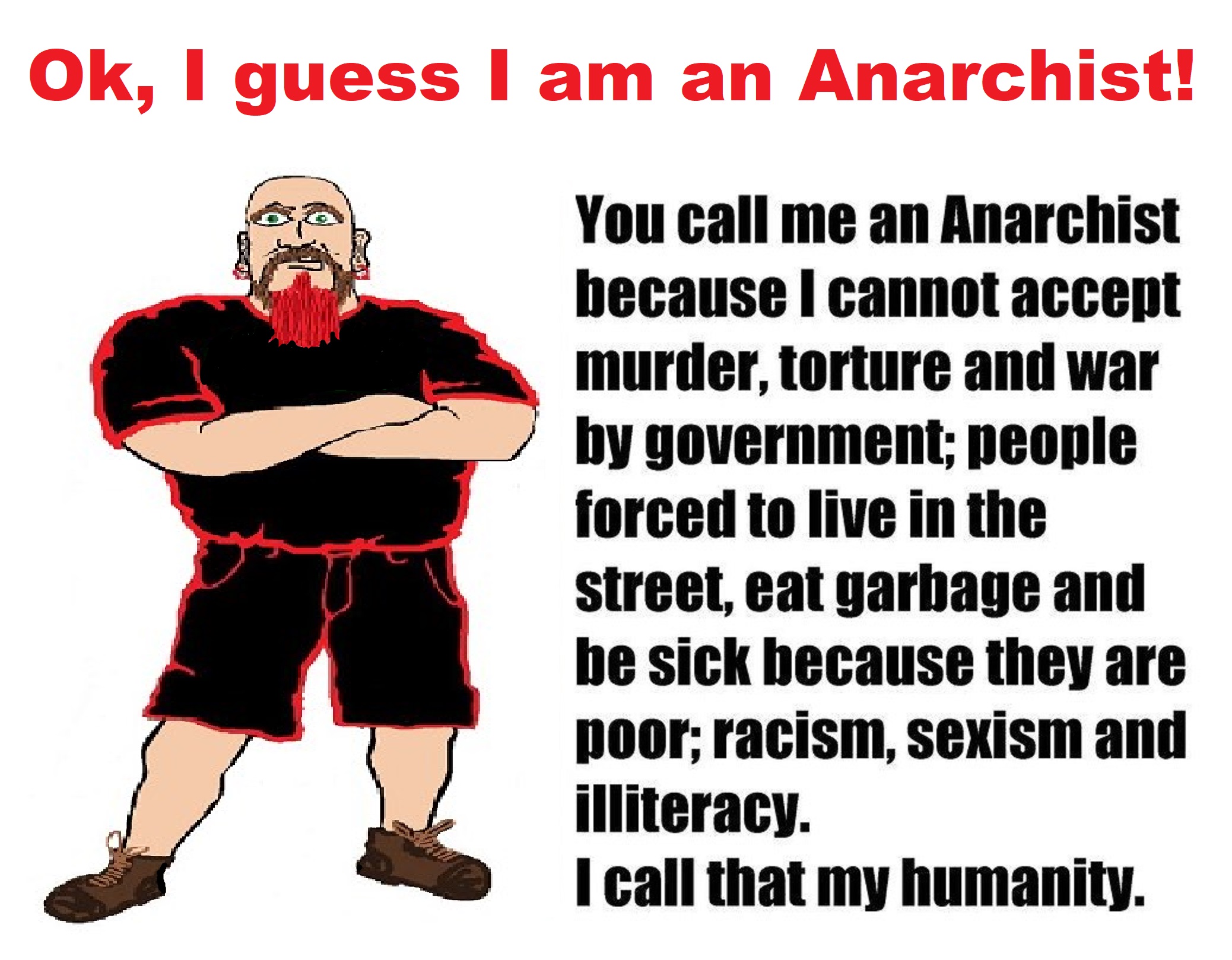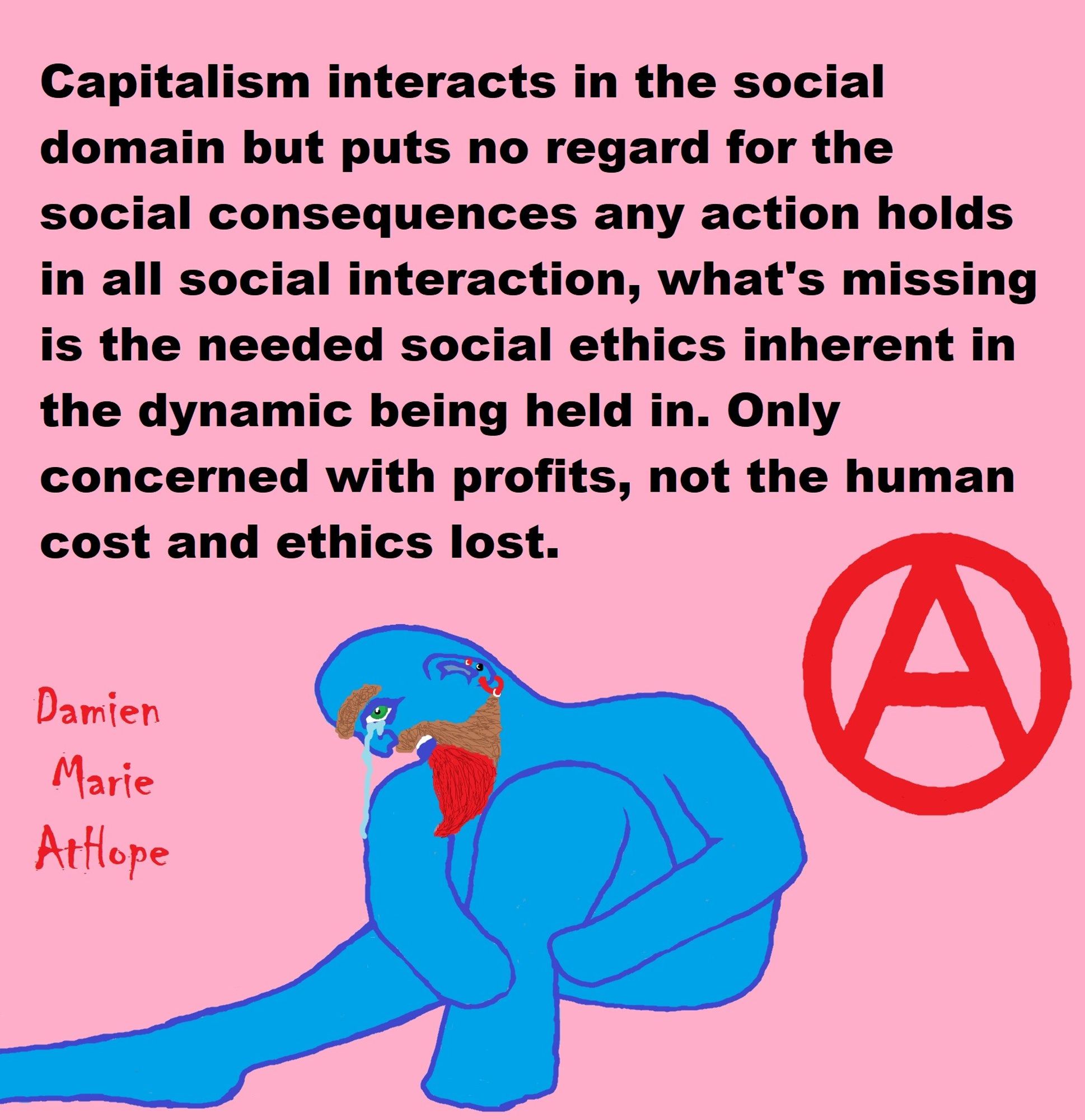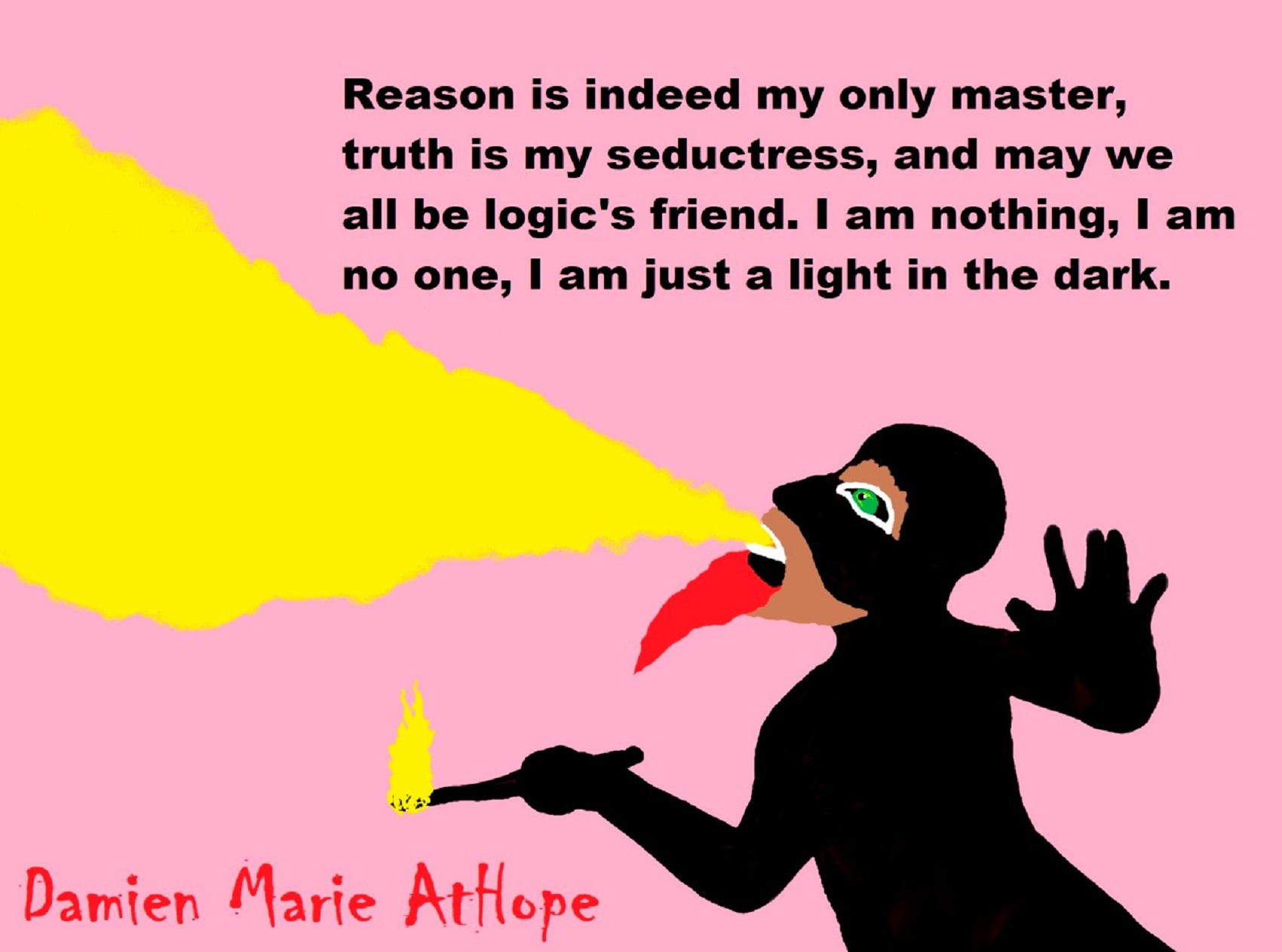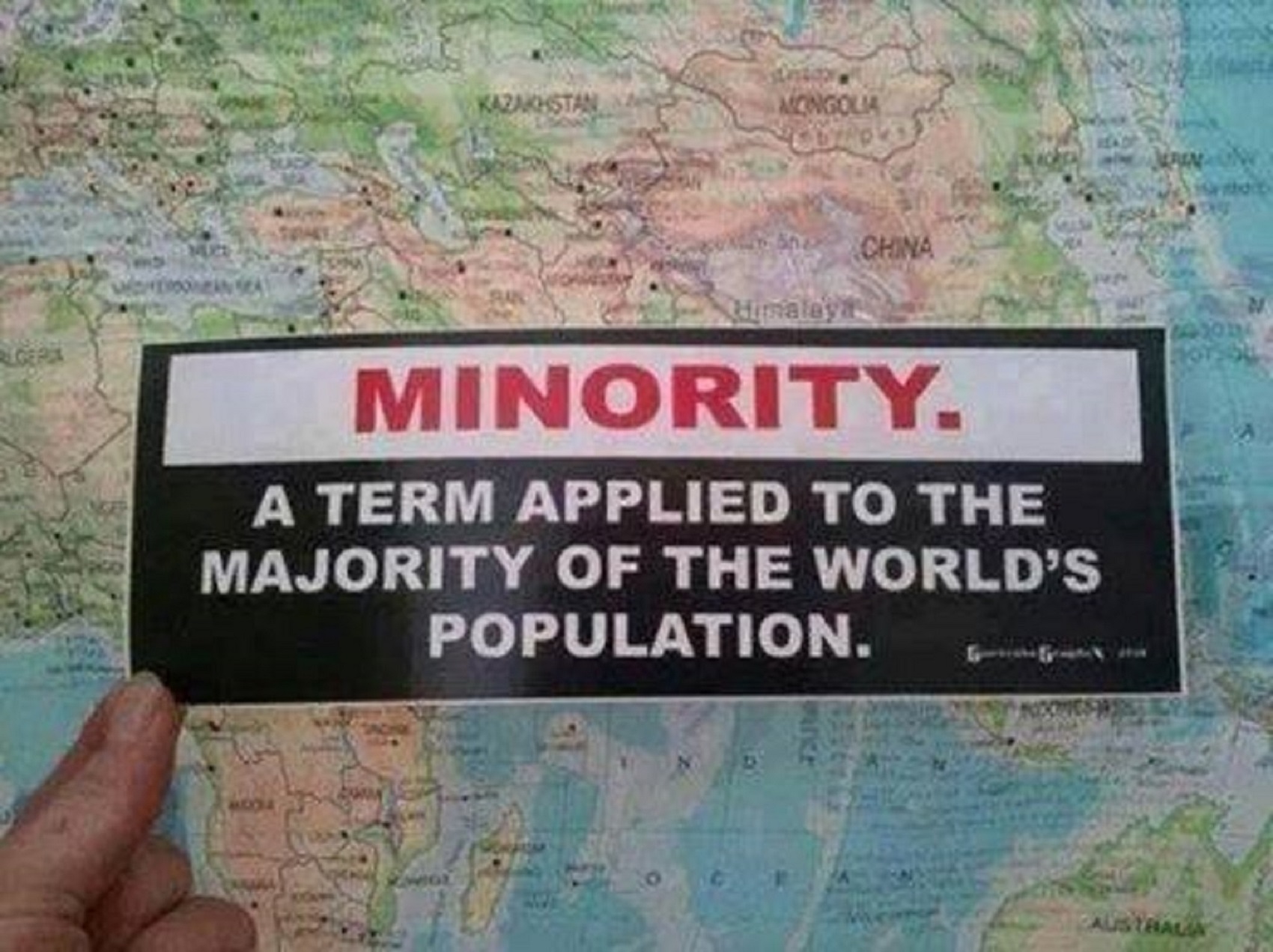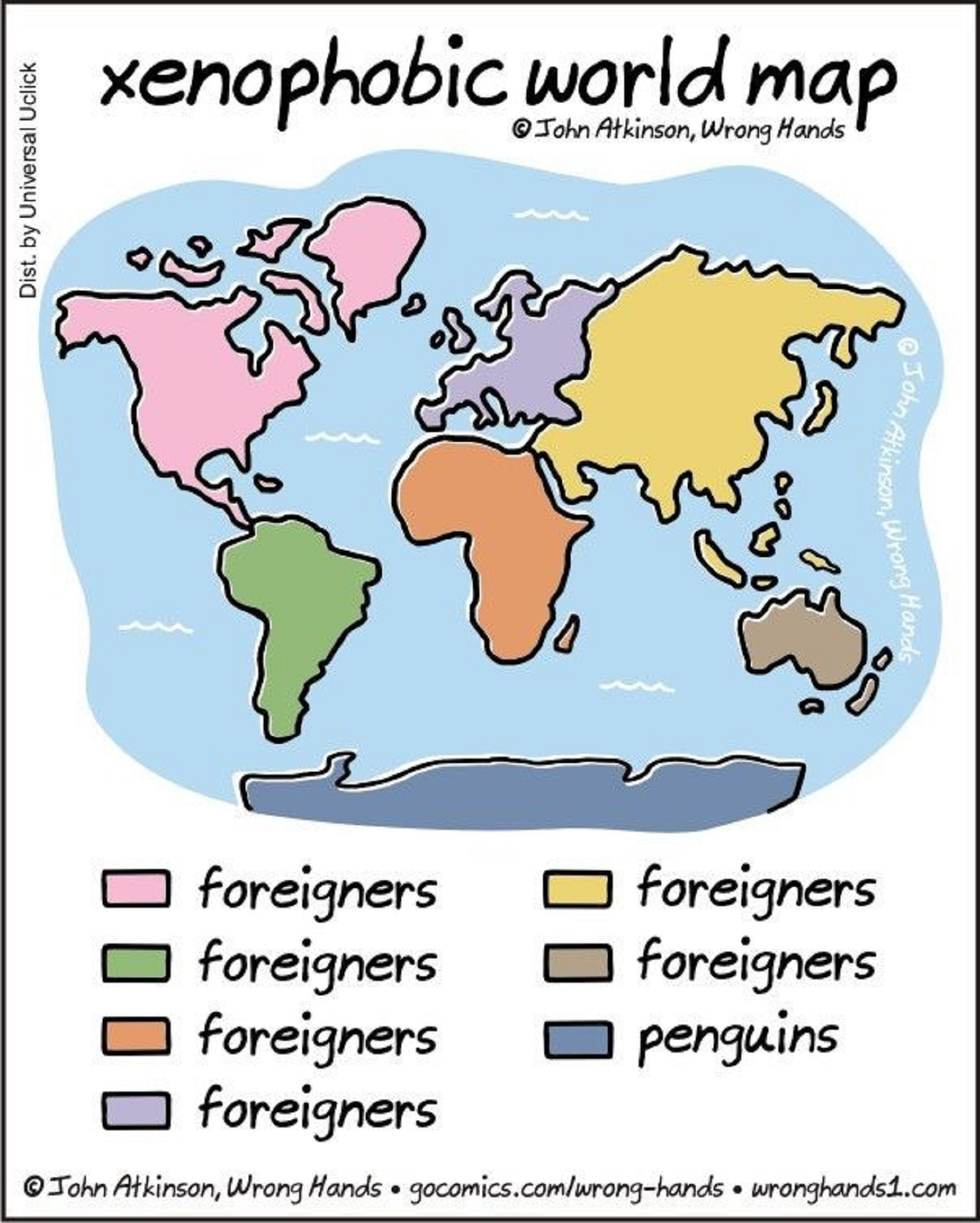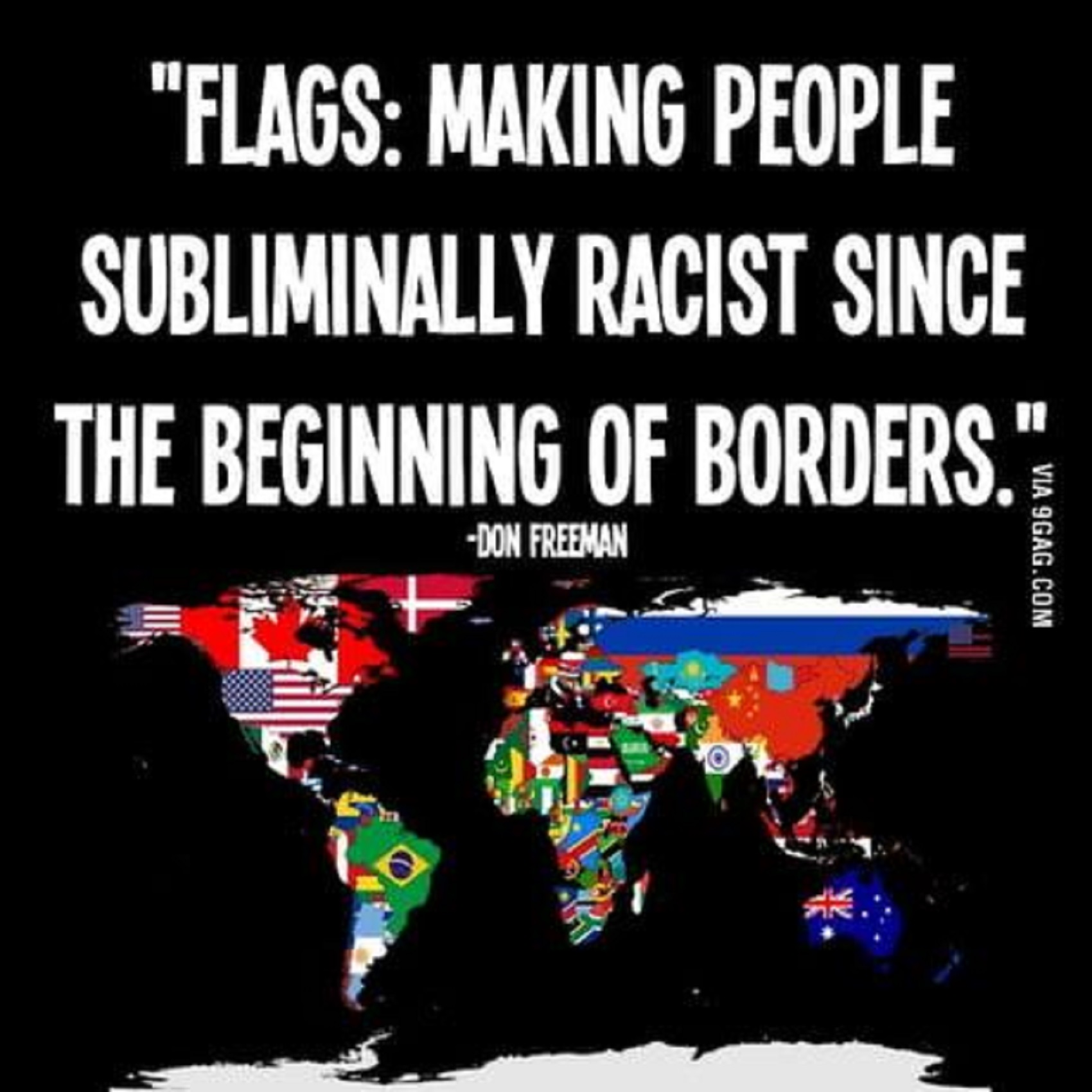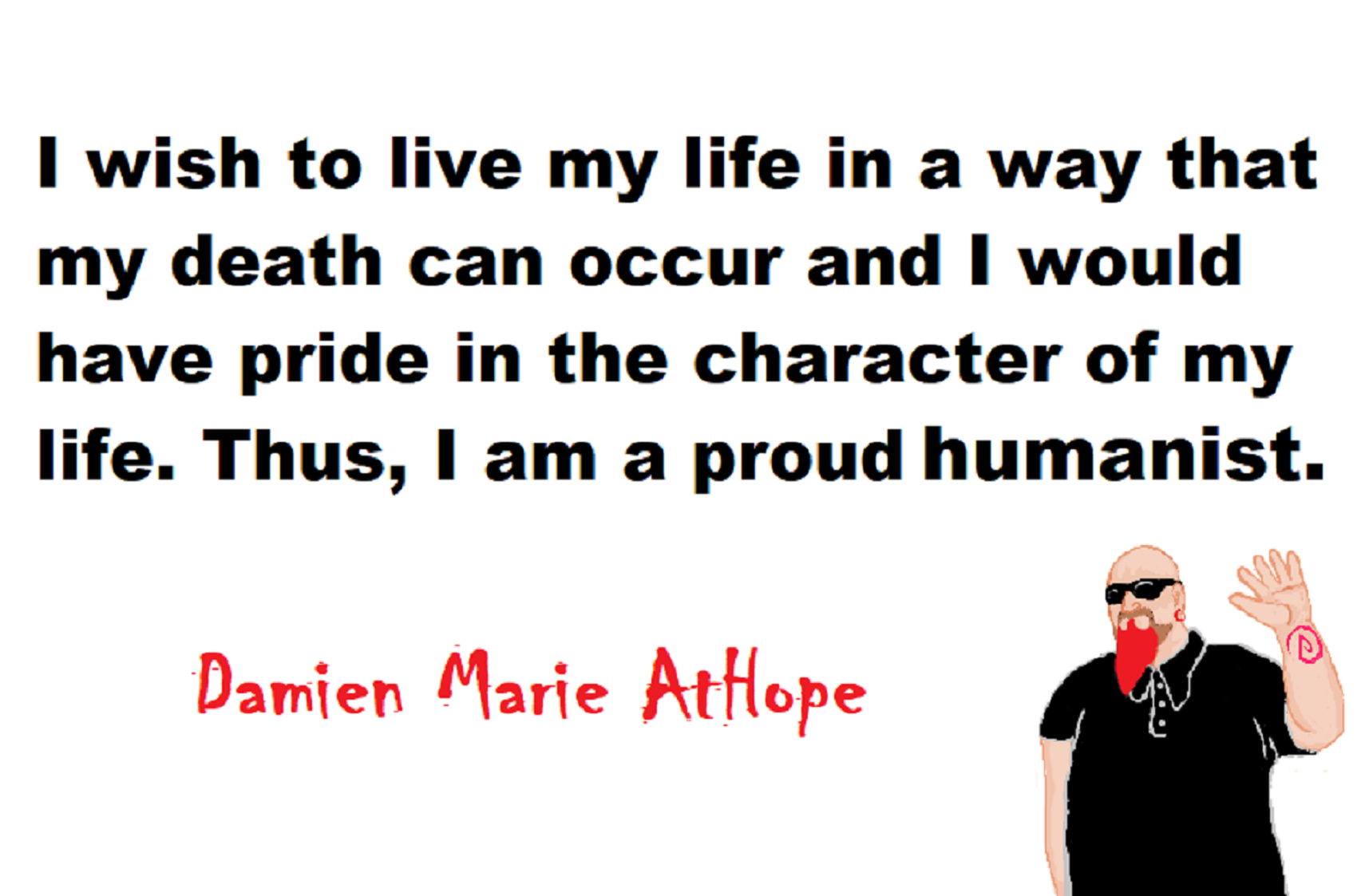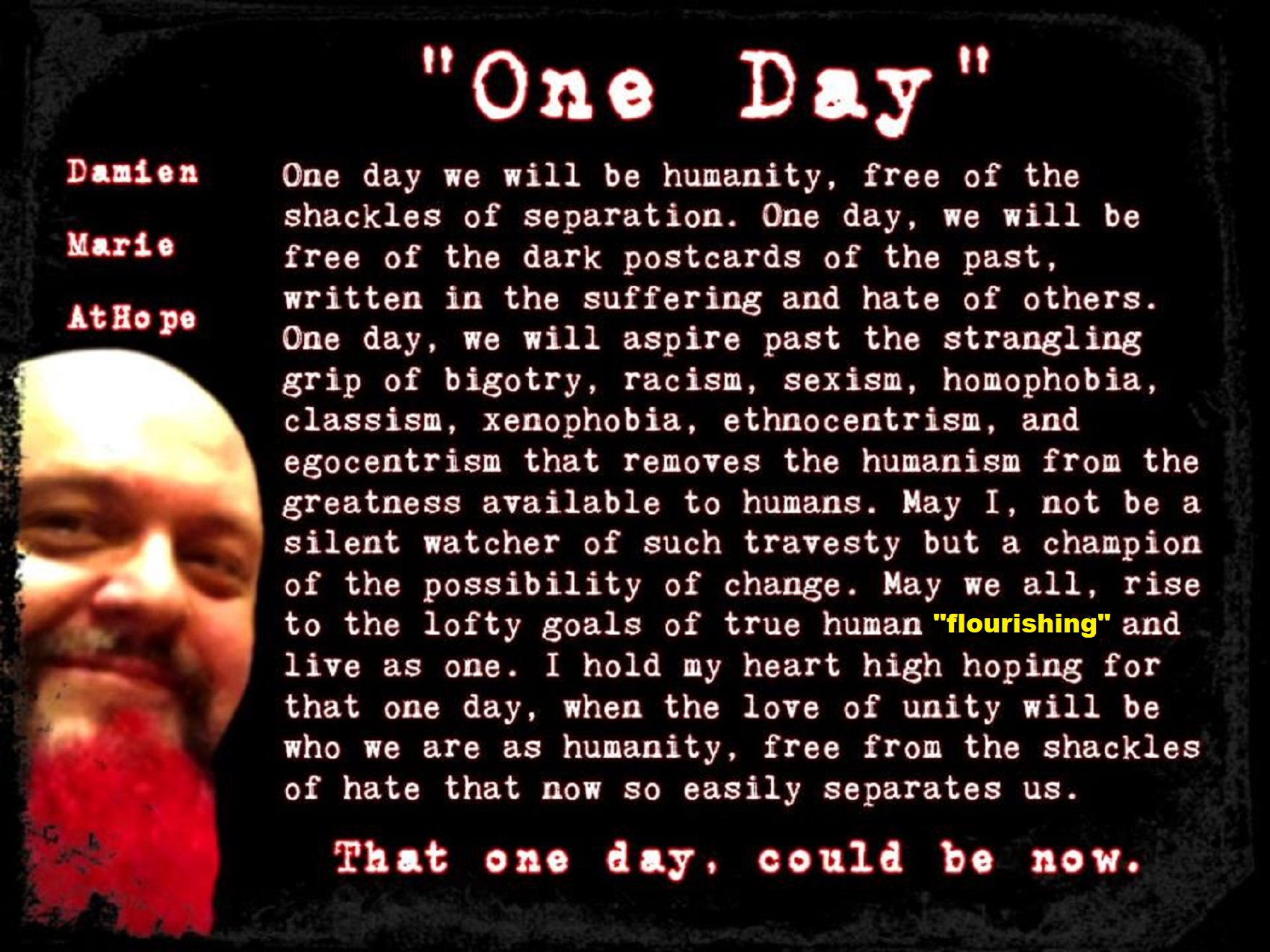
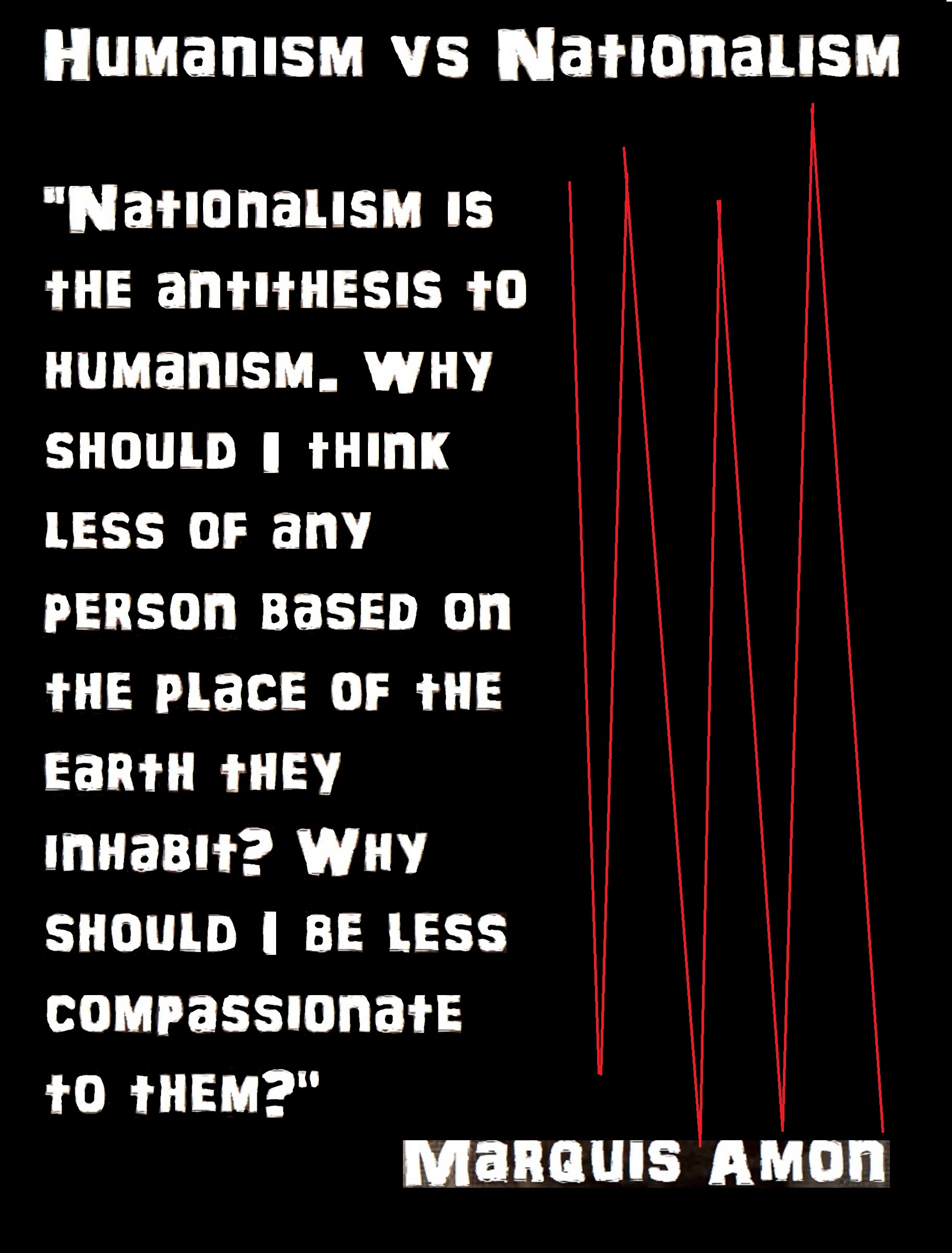

Without community, we all suffer, to not see that is an ontological confusion of the natural reality of humans an group, we are cohabiting social-animals, individualism is an “abstract,” removed in a denialism way to the connected reality, it is nonsense to see ourselves and not interconnected and in need of others as we all need supporting social links, we created individualism as a way of removing us from the group reality, to make our divisiveness to a oneness of humanity, feel not important but the cost is our flourishing humanity. Think otherwise then try making everything your own, yourself and do it out in nature removed from all the conveniences the group made long ago as those are removed from you doing it all your self. Don’t forget, including the resources we use every day, like clean water, food, electricity, etc. If individualism stayed only to the person and was contained in them, limited to only them personally as in having the freedom of ones own beliefs or lifestyle then great but when t is pushed in to the public where it can tend to be quite divisive and separating of and between people it becomes a juggernaut of potential oppression and humanity alienation as well as inspiring the desire for green and the ruin of natural resources and our fellow humans should not just be some now hot commodity to fleece as it is was some individualism ideal. I personally support collectivist mutualist thinking.
Yes, you heard that right, a collectivist mutualist and while I am not a communist I am part of socialist thinking. Thus,
“To me individualism, represents self-reliance and hostility to a connected humanity.”
It is said that “gods/ancestor spirits”, or possibly “karma” what ever magical thinking mumbo jumbo reality disconnected nonsense like, the secret or what ever saying in someway that something nonreal cares about somewhat highly evolved hairless primates sitting on a terraformed biosfer rock that is not only spinning at mph but also hurling through the solar system. and that my friend is something we need not forget through all the manmade mental structures we artificially and abstractly utilize them in ways so confusing we miss how destructive they truly can be, such as individualism being harmfully instituted as some thing to glorify? Who or what do we champion is not the right question but who or what should we champion? How can it truly be individualism: which is an inordinate or insatiable longing, for self status and self interest which is harmful in a societal context especially for abuses with and about wealth, status, and power that like greed inherently connects to antisocial desires to acquire or possess more than one even needs.
All’s not lost yet as we have each other don’t for get that. Emotional and or mental illness can be manages with medication made by others distributed by caring mental health professionals that also can offer connection and interpersonal relating that has been shown to help. After all we are social animals we simply must have each other evolutionarily and greatly benefit from positive human interactions. But there is a great danger in our staying apathetic to such disparate issues because over 90 percent of people who die by suicide have a mental illness at the time of their death. And the most common mental illness is depression. Untreated depression is the number one cause for suicide.
And guess what Depression is more harmfully experienced in Individualistic Cultures, like America. Scince does have a verdict on this issue:
A genetic vulnerability to depression is much more likely to be realized in a Western culture than an East Asian culture that is more about we than me-me-me. The study of the growing field of cultural neuroscience takes a global look at mental health across social groups and nations. Depression, research overwhelmingly shows, results from genes, environment and the interplay between the two. One of the most profound ways that people across cultural groups differ markedly, cultural psychology demonstrates, is in how they think of themselves. “People from highly individualistic cultures like the United States and Western Europe are more likely to value uniqueness over harmony, expression over agreement, and to define themselves as unique or different from the group,” said Joan Chiao, the lead author of the study and assistant professor of psychology in the Weinberg College of Arts and Sciences at Northwestern. In contrast, people from collectivist cultures are more likely to value social harmony over individuality. “Relative to people in an individualistic culture, they are more likely to endorse behaviors that increase group cohesion and interdependence,” Chiao said. Collectivist cultures may give individuals who are genetically susceptible to depression a tacit or explicit expectation of social support. “Such support seems to buffer vulnerable individuals from the environmental risks or stressors that serve as triggers to depressive episodes,” Chiao said. The study by Chiao and Northwestern graduate student Katherine Blizinsky, “Culture-gene coevolution of individualism-collectivism and the serotonin transporter gene,” will be published online in the journal Proceedings of the Royal Society B: Biological Sciences. The study compared genetic frequency information and cultural value data across 29 countries (major European countries as well as South Africa, Eastern Europe, South Asia, East Asia and South America). The serotonin transporter gene (STG) that the researchers studied has two variants – a short allele and a long allele. In Western populations, the short allele leads to a phenotype of major depressive episodes when people who carry it experience multiple life stressors. Previous research shows that nations in the East Asian region have a disproportionate number of short allele carriers, and the Northwestern researchers replicated that finding. They also replicated cultural psychology research demonstrating that nations within East Asia are typically more collectivistic. What surprised them was the robust association they found between the degree of collectiveness of a particular nation and the degree to which a disproportionate number of people carried the short allele of the STG. Collectivistic nations were found to have significantly more individuals who carry the short allele of the STG. Even more remarkably, they found, collectivistic nations, such as East Asia, where nearly 80 percent of the population is genetically susceptible to depression, the actual prevalence of depression is significantly lower than in individualistic nations, such as the United States and Western Europe. This research strongly suggests that medical doctors need to work with basic scientists to better understand the complex dance that biology and culture play in both mitigating and causing mood disorders, such as depression, Chiao concluded. These research findings suggest that culture-based treatments may be equally if not more effective at reducing the risk for depression. Medical doctors who embrace scientific findings of global health trends and human cultures may gain invaluable insights about how our genetic heritage and cultural environments affect human behavior. “We need to move away from quick and dirty methods of treatment for depression,” she said, “especially for those genetically susceptible to developing mental illnesses.” Ref
And what else would we expect, as pondered by Jesse Smith a school therapist, “It can really be summarized in our predominant cultural philosophy – individualism. This word tells us to emphasize our differences over commonalities, to build our own lives from scratch, to believe our successes as well as our failures ultimately fall on us and us alone. Our families, our cultures, our localities, even our religions and belief systems, are merely private affairs. Not greater forces that guide us through life and connect us to others. Instead, just little puzzle pieces we put together to help define what really matters – our self-made selves. If you don’t feel happiness, it’s because you, personally, failed to create it for yourself. You chose the wrong pieces. Or put them together poorly. And there’s nothing anybody else can do about it. You’ve made yourself unlike the rest. They can’t understand your special brand of pain. I can’t imagine a better recipe for loneliness, meaninglessness, sense of failure – in a word, depression. When our standards for each other and ourselves revolve around our grades, our salaries, our name recognition, our tasteful yet distinctive sense of fashion, the validity and attractiveness of our collage of self-assigned labels, etc…we set ourselves up for some pitfalls. Many of us either will either feel the sting of failing to reach (or even form) our own expectations, or decide the expectations we set weren’t that worthwhile to begin with.” Ref
3 Ways the US Uses Individualism to Blame Victims for Their Own Suffering
I was taught that we were the best country in the world. It gave me a sense of pride and arrogance that I never had before, believing that I could do anything to anyone I wanted.
I later learned about Capitalism, the Declaration of Independence, the Founding Fathers, and other American mythology, and my father’s advice was in the rearview mirror – a distant memory from a time I was more innocent. I internalized these American beliefs because they were taught to me by other authority figures. When I say “American mythology,” I’m talking about the story that we tell ourselves of who we are as a nation. I mean the constant reiteration of “The American Dream” – that you, as a strong individual, can make it if you just work hard enough. I’m talking about how we have a narrative of aggressive individualism that’s been indoctrinated into our psyches at an early age so pervasively that the likeliness of ever challenging it is slim to none. I understand the allure. Aggressive individualism is a powerful feeling. But this alluring mythology has troubling connotations. The more our mythology harps on how we are strong individuals that can overcome anything, the more we blame ourselves when we can’t live up to those expectations.
We blame ourselves for our own shortcomings, which makes us likelier to blame others for theirs as well.
Our mythology is not a universal truth. It’s simply a set of ideas – and ideas can be challenged. These ideas are repetitions that your pride is more important than anything else in the world. They are reiterations that everything you do – all of your successes and failures – rest solely on your shoulders. They lead you to hold such a strong sense of individualism that you feel that you can overcome anything despite any historical and sociological evidence that may suggest otherwise. And if you can’t overcome insurmountable obstacles, you are taught to blame yourself. So, to unpack such ingrained narratives, we must look at the core of these beliefs and question them – because an unchallenged idea can be extremely dangerous.
1. ‘Give Me Liberty or Give Me Death’
Our mythology begins with our Founding Fathers standing up to the authority of the British Crown and breaking free from their rule. At the outset, we are rebels – and the ideas of “independence” and “freedom” are very important to us. In this context, “give me liberty or give me death” is a powerful statement from one country to another: We will not be pushed around. However, when that historical context is removed, people instead use “give me liberty or give me death” as a way of asserting themselves as aggressively independent individuals.
The preservation of one’s pride becomes more important than anything else, including one’s life (and certainly the lives of others).
Much too frequently in our culture, we proactively fight with others to preserve our pride, even if the situation doesn’t call for it. We become fixated on never being pushed around under anycircumstances, whether the infraction is major or minor. We even stand up for ourselves proactively for perceived offenses, lest our pride is even potentially challenged. I’d watch television shows where a child would be bullied in school, and the advice the child received from adults was to stand up to the bully. “He’s more afraid of you than you are of him,” they’d say. “The best way to get a bully to back down is to stand up to him.” Not once did I ever see a television show where it was admirable for the child to seek an adult’s help.
Fighting your own battles is seen as a virtue under any and all circumstances, even for children. Seeking help from – or working with – others is a sign of weakness.
Leading children to believe that they must handle verbally and physically abusive situations on their own is a form of child abuse. A classmate once followed me home from school and punched me in the stomach. I took my dad’s advice, ran away, and told some adults. He stopped bullying me shortly after. I felt good about the outcome, but other students ridiculed me for “tattling.” They couldn’t believe that I’d let someone wound my pride that way, and at the time, I had no idea that pride was such a virtue. That was something I had to learn over time. My classmates viewed this altercation as a fight that I “lost,” because to them, my pride had been wounded since I didn’t retaliate. The bully, on the other hand, was viewed as “the winner” because his pride was still intact since he didn’t receive a violent comeuppance. His actions went unexamined and all of the focus was on me, the victim of this incident. People would ask me: “What did you do to provoke this bully? How did you make him angry? Why didn’t you hit him back? Why didn’t you stand up for yourself?” The bully received little to no attention. He essentially got a free pass. It’s much easier to view society as something that works as is, while viewing instances of victimizations as anomalies. It’s simpler to look at each incident – and person – as isolated, because doing so keeps us from looking at the bigger picture. But I believe that instances of oppression occur too frequently to be written off as anomalies. It is a pervasive and cultural problem that needs addressing. Before we can think of tangible solutions to minimize these incidents, we first need to acknowledge and admit that we have a problem, especially when it comes to feeling aggressively individualistic while having excessive pride.
2. ‘Pull Yourself Up by Your Bootstraps’ (Also Known As ‘The American Dream’)
A few months ago, I was heartbroken to hear one of my friends speak with such self-hating defeat in his voice, “I can’t find a job. I’m so broke. It’s my fault. I’m trying my best, but if I can’t find a job, it must mean I’m just not trying hard enough.” He refused to blame anyone other than himself. Whenever I even tried to bring up that the economy was down or that people in general are struggling to find jobs, he told me that he didn’t want to be one of those people who blamed society for his problems. The fact that he grew up with no money and had to take care of his family since he was fifteen years old was a non-factor to him. Those, he said, were just “excuses.” Without realizing it, he was regurgitating beliefs we learned in school. We were taught so many rags to riches stories by teachers – about how so-and-so started with nothing, pulled himself up by the bootstraps, and became a millionaire – from history class to literature courses.
I didn’t realize at the time that the implication was that if it’s possible for them, it’s possible for anyone – that if you aren’t a rags to riches story, then you have nobody to blame but yourself.
Not only is this viewpoint inaccurate and cruel, but it also teaches children at a very young age that lacking empathy is an admirable trait. Pulling yourself up by your bootstraps is fundamentally a capitalistic mentality. Empathy is the ability to put yourself in someone else’s shoes and think outside of yourself, while American Capitalism exalts ruthless pragmatism (look at how many fans the villainous Frank Underwood has), which is the antithesis of empathy. To become a sufficient capitalist, one must – at least partially – shut off the empathetic part of their brain and not think about the consequences of potentially destroying their competitors’ livelihoods, and in some cases, their lives. If a capitalist gets too lost in empathy, they could lose the ruthlessness necessary to achieve financial success. Lacking empathy mixed with victim-blaming (including victims who blame themselves) makes for a dangerous combination.
By encouraging people to believe that they are the only ones responsible for their own successes and failures, we subtly attach morality with financial worth. We imply that with hard work comes success, which in turn means that failure comes from laziness.
As a result, we cultivate disdain for those with lower incomes because we equate poverty with an unwillingness to work hard, and furthermore, view poverty as a trait to vilify. We kick ourselves and others when we’re down, and meanwhile, we root for the rich and the wealthy, whom take advantage of us all because we equate affluence with success and hard work. Every time I hear about someone who is struggling, I still have an initial instinct to wonder what mistakes they made in their life to become that way because I was taught the same victim-blaming narratives as everyone else. I’ve had to train myself to turn on my empathy and question what was always taught to me. Doing so makes it easier for me to challenge the systems in place and feel compassion for those who are less fortunate, and it stops the toxic cycle of blaming the victim.
3. ‘Life, Liberty, and the Pursuit of Happiness’
On its face, “the pursuit of happiness” sounds wonderful. Pursuing happiness is such a hopeful concept, and it’s written in our Declaration of Independence. However, the idea of “the pursuit of happiness” will always have plausible deniability. It can always be used as a scapegoat to attack those who have failed to “pull themselves up by their bootstraps.” When I was in college and heard my classmates lamenting about injustices in the United States, a conservative would always chime in with the narrative that happiness is not “guaranteed,” only the pursuit is (and a speech about “personal responsibility” would soon follow).
Therefore, one can conclude that failure to achieve happiness is a personal failure, because our Declaration of Independence implies that society has given everyone a fair opportunity (pursuit) and it’s up to the individual to create success on their own.
Thus, those who are struggling and fail to achieve success are victim-blamed by their own Declaration of Independence, which is our sacred document. If only the pursuit is promised, the only thing we’re really guaranteed is the intangible idea of hope. This makes second-guessing the Declaration of Independence a very delicate act – because to ask others to question the logic of our so-called “inalienable rights” is asking them to consciously shatter their hopes, and for some people, hope is all they have. Many people will die defending the system that failed them because it’s too difficult to admit that the structure never favored them to begin with. It’s too devastating to accept that we were fed so many lies, and I think this is a large reason why many people victim-blame. I’ve seen people actually blame Tamir Rice for getting shot by the police within seconds of arriving on the scene. People have asked what the student in South Carolina did to deserve getting beaten and dragged by a police officer inside her classroom. Comedians have made countless jokes asking what Rihanna said to Chris Brown to deserve getting physically assaulted. In these instances, the focus is all on the victims – and we give less criticism to bullies and predators because if we condemn them, we’re at least partially admitting to the failings of our society. Admitting that we, in part, cultivate, create, and protect bullies is much a harder concept to swallow than figuring out whether or not the victim deserved what happened to them. When people spout such vicious victim-blaming rhetoric, I see people who are obviously dripping with hatred and bigotry, but I also see people who desperately fight to preserve order because are deathly afraid of people attacking the very system that they’ve put so much faith in.
They need order to stay intact because the alternative, which is the exposure that we’ve all been sold lies and propaganda that damage the vast majority of us, is too difficult to bear.
Or they’re so desperately afraid that the system might change into something they don’t recognize because they are currently benefitting in several ways, namely our culture’s favoritism of bullies and predators. The thought of losing their status or privilege fills them with terror. Ironically, in many ways, this current structure likely doesn’t benefit them as much as they believe. The system really only aids those who know how to obtain keep power by cheating the game. It encourages predatory behavior because more than anyone else, ruthless people reap the rewards. It brainwashes us into thinking that oppressive behavior is a natural state of being when the reality is, very few people are born without a conscience. But the very essence of our society encourages people to have diminished empathy and remorse in order to succeed financially, which, by definition, encourages sociopathic thoughts and behaviors.
I believe we can stop the cycle of blaming victims, lacking empathy, and creating monsters if we collectively pondered where our beliefs came from, who taught them to us, and why we believe these ideas.
I think most people would be astonished to realize that through no fault of their own, they were indoctrinated at an early age. If we can break out of our own individual bubbles and work with one another, we might realize that most of us suffer from similar hardships. We can begin building our collective empathy and start showing compassion for one another. And together, maybe we can see that aggressive individualism is toxic for a society, and hopefully we can realize that we’re all in this together. Maybe then, we can actually pursue genuine happiness in a meaningful way. Ref
If you are still not sure thinking how can we stop or end an idea like individualism. An idea is a belief or group of beliefs, would it seem strange to feel I could change the beliefs of the religious but not the beliefs of individualism? Well, to put it simply, we fight it in a similar way to which we would use to combat religious beliefs that are false and harmful. To me, we can see the problem quite clear with our last election where individualism is lashing back against the ever growing collectivism and a large connected undercurrent ontology of why trump is president.
In closing I give you a poem/writing of mine called:
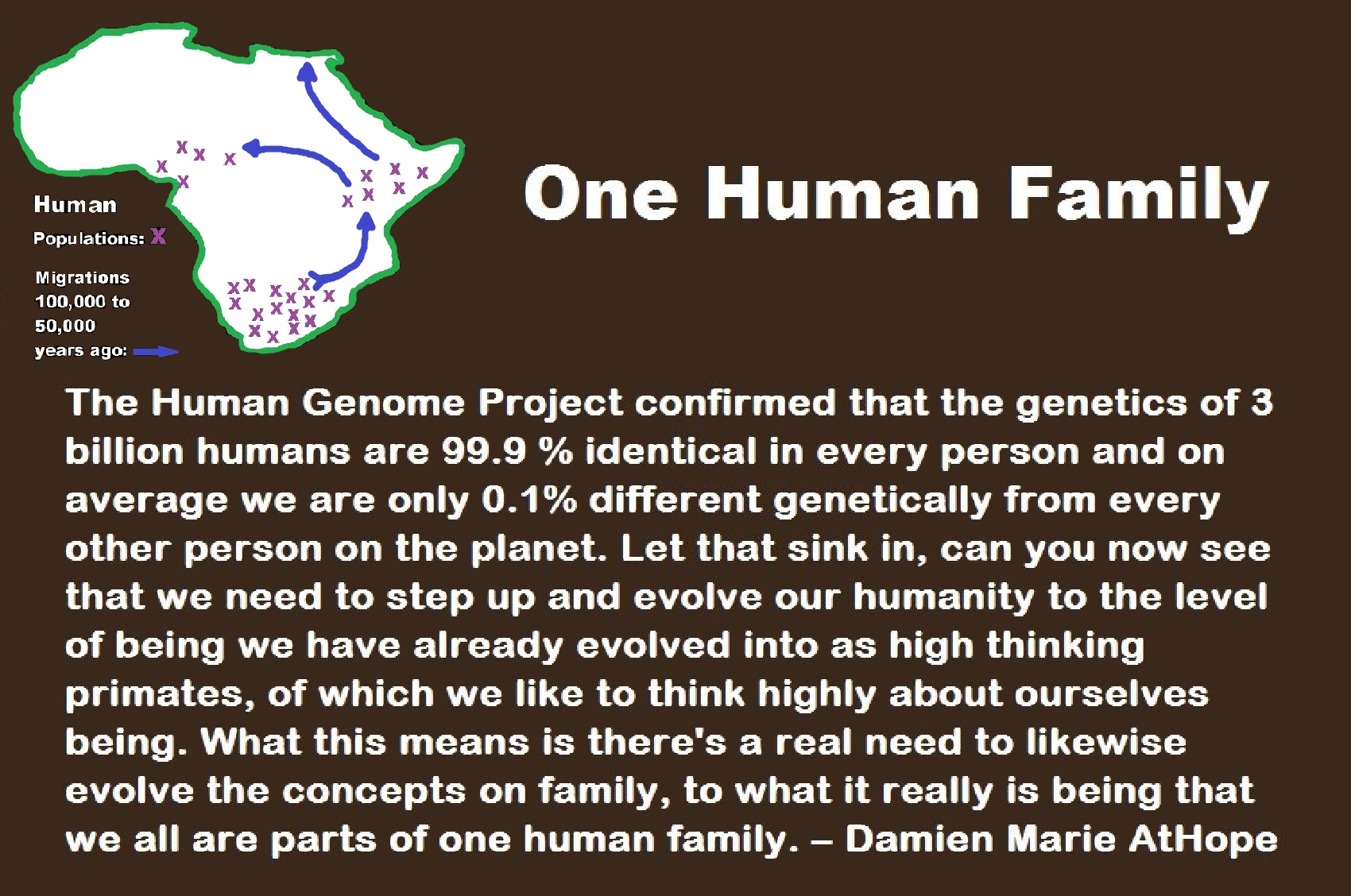
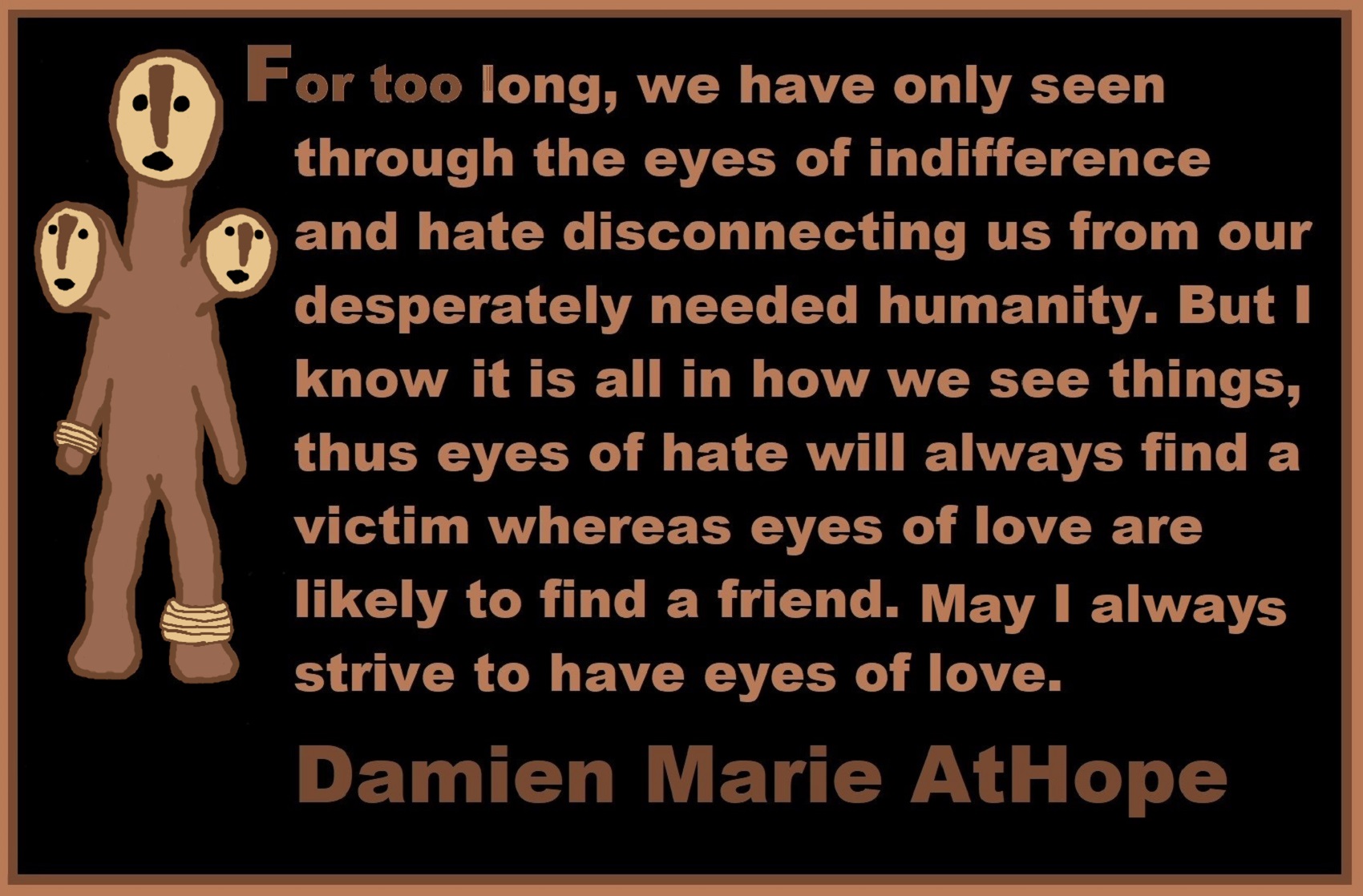
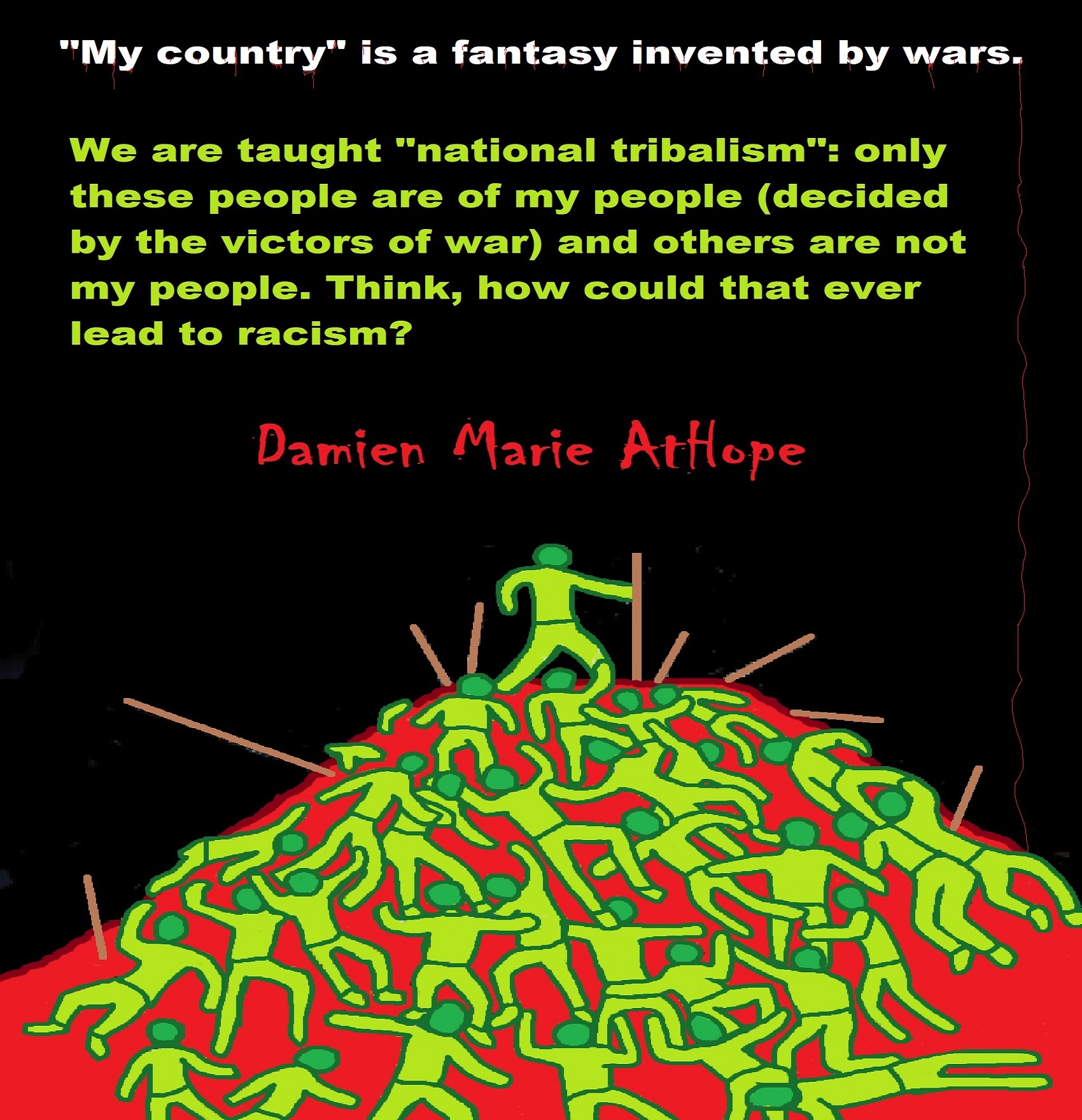


“Theists, there has to be a god, as something can not come from nothing.”
Well, thus something (unknown) happened and then there was something. This does not tell us what the something that may have been involved with something coming from nothing. A supposed first cause, thus something (unknown) happened and then there was something is not an open invitation to claim it as known, neither is it justified to call or label such an unknown as anything, especially an unsubstantiated magical thinking belief born of mythology and religious storytelling.

While hallucinogens are associated with shamanism, it is alcohol that is associated with paganism.
The Atheist-Humanist-Leftist Revolutionaries Shows in the prehistory series:
Show two: Pre-animism 300,000 years old and animism 100,000 years old: related to “Anarchism and Socialism”
Show tree: Totemism 50,000 years old: related to “Anarchism and Socialism”
Show four: Shamanism 30,000 years old: related to “Anarchism and Socialism”
Show five: Paganism 12,000 years old: related to “Anarchism and Socialism”
Show six: Emergence of hierarchy, sexism, slavery, and the new male god dominance: Paganism 7,000-5,000 years old: related to “Anarchism and Socialism” (Capitalism) (World War 0) Elite and their slaves!
Prehistory: related to “Anarchism and Socialism” the division of labor, power, rights, and recourses: VIDEO
Pre-animism 300,000 years old and animism 100,000 years old: related to “Anarchism and Socialism”: VIDEO
Totemism 50,000 years old: related to “Anarchism and Socialism”: VIDEO
Shamanism 30,000 years old: related to “Anarchism and Socialism”: VIDEO
Paganism 12,000 years old: related to “Anarchism and Socialism” (Pre-Capitalism): VIDEO
Paganism 7,000-5,000 years old: related to “Anarchism and Socialism” (Capitalism) (World War 0) Elite and their slaves: VIEDO
Paganism 5,000 years old: progressed organized religion and the state: related to “Anarchism and Socialism” (Kings and the Rise of the State): VIEDO
Paganism 4,000 years old: related to “Anarchism and Socialism” (First Moralistic gods, then the Origin time of Monotheism): VIEDO
I do not hate simply because I challenge and expose myths or lies any more than others being thought of as loving simply because of the protection and hiding from challenge their favored myths or lies.
The truth is best championed in the sunlight of challenge.
An archaeologist once said to me “Damien religion and culture are very different”
My response, So are you saying that was always that way, such as would you say Native Americans’ cultures are separate from their religions? And do you think it always was the way you believe?
I had said that religion was a cultural product. That is still how I see it and there are other archaeologists that think close to me as well. Gods too are the myths of cultures that did not understand science or the world around them, seeing magic/supernatural everywhere.
I personally think there is a goddess and not enough evidence to support a male god at Çatalhöyük but if there was both a male and female god and goddess then I know the kind of gods they were like Proto-Indo-European mythology.
This series idea was addressed in, Anarchist Teaching as Free Public Education or Free Education in the Public: VIDEO
Our 12 video series: Organized Oppression: Mesopotamian State Force and the Politics of power (9,000-4,000 years ago), is adapted from: The Complete and Concise History of the Sumerians and Early Bronze Age Mesopotamia (7000-2000 BC): https://www.youtube.com/watch?v=szFjxmY7jQA by “History with Cy“
Show #1: Mesopotamian State Force and the Politics of Power (Samarra, Halaf, Ubaid)
Show #2: Mesopotamian State Force and the Politics of Power
Show #3: Mesopotamian State Force and the Politics of Power (Uruk and the First Cities)
Show #4: Mesopotamian State Force and the Politics of Power (First Kings)
Show #5: Mesopotamian State Force and the Politics of Power (Early Dynastic Period)
Show #6: Mesopotamian State Force and the Politics of Power
Show #7: Mesopotamian State Force and the Politics of Power (Sargon and Akkadian Rule)
Show #9: Mesopotamian State Force and the Politics of Power (Gudea of Lagash and Utu-hegal)
Show #12: Mesopotamian State Force and the Politics of Power (Aftermath and Legacy of Sumer)

The “Atheist-Humanist-Leftist Revolutionaries”
Cory Johnston ☭ Ⓐ Atheist Leftist @Skepticallefty & I (Damien Marie AtHope) @AthopeMarie (my YouTube & related blog) are working jointly in atheist, antitheist, antireligionist, antifascist, anarchist, socialist, and humanist endeavors in our videos together, generally, every other Saturday.
Why Does Power Bring Responsibility?
Think, how often is it the powerless that start wars, oppress others, or commit genocide? So, I guess the question is to us all, to ask, how can power not carry responsibility in a humanity concept? I know I see the deep ethical responsibility that if there is power their must be a humanistic responsibility of ethical and empathic stewardship of that power. Will I be brave enough to be kind? Will I possess enough courage to be compassionate? Will my valor reach its height of empathy? I as everyone, earns our justified respect by our actions, that are good, ethical, just, protecting, and kind. Do I have enough self-respect to put my love for humanity’s flushing, over being brought down by some of its bad actors? May we all be the ones doing good actions in the world, to help human flourishing.
I create the world I want to live in, striving for flourishing. Which is not a place but a positive potential involvement and promotion; a life of humanist goal precision. To master oneself, also means mastering positive prosocial behaviors needed for human flourishing. I may have lost a god myth as an atheist, but I am happy to tell you, my friend, it is exactly because of that, leaving the mental terrorizer, god belief, that I truly regained my connected ethical as well as kind humanity.
Cory and I will talk about prehistory and theism, addressing the relevance to atheism, anarchism, and socialism.
At the same time as the rise of the male god, 7,000 years ago, there was also the very time there was the rise of violence, war, and clans to kingdoms, then empires, then states. It is all connected back to 7,000 years ago, and it moved across the world.
Cory Johnston: https://damienmarieathope.com/2021/04/cory-johnston-mind-of-a-skeptical-leftist/?v=32aec8db952d
The Mind of a Skeptical Leftist (YouTube)
Cory Johnston: Mind of a Skeptical Leftist @Skepticallefty
The Mind of a Skeptical Leftist By Cory Johnston: “Promoting critical thinking, social justice, and left-wing politics by covering current events and talking to a variety of people. Cory Johnston has been thoughtfully talking to people and attempting to promote critical thinking, social justice, and left-wing politics.” http://anchor.fm/skepticalleft
Cory needs our support. We rise by helping each other.
Cory Johnston ☭ Ⓐ @Skepticallefty Evidence-based atheist leftist (he/him) Producer, host, and co-host of 4 podcasts @skeptarchy @skpoliticspod and @AthopeMarie
Damien Marie AtHope (“At Hope”) Axiological Atheist, Anti-theist, Anti-religionist, Secular Humanist. Rationalist, Writer, Artist, Poet, Philosopher, Advocate, Activist, Psychology, and Armchair Archaeology/Anthropology/Historian.
Damien is interested in: Freedom, Liberty, Justice, Equality, Ethics, Humanism, Science, Atheism, Antiteism, Antireligionism, Ignosticism, Left-Libertarianism, Anarchism, Socialism, Mutualism, Axiology, Metaphysics, LGBTQI, Philosophy, Advocacy, Activism, Mental Health, Psychology, Archaeology, Social Work, Sexual Rights, Marriage Rights, Woman’s Rights, Gender Rights, Child Rights, Secular Rights, Race Equality, Ageism/Disability Equality, Etc. And a far-leftist, “Anarcho-Humanist.”
I am not a good fit in the atheist movement that is mostly pro-capitalist, I am anti-capitalist. Mostly pro-skeptic, I am a rationalist not valuing skepticism. Mostly pro-agnostic, I am anti-agnostic. Mostly limited to anti-Abrahamic religions, I am an anti-religionist.
To me, the “male god” seems to have either emerged or become prominent around 7,000 years ago, whereas the now favored monotheism “male god” is more like 4,000 years ago or so. To me, the “female goddess” seems to have either emerged or become prominent around 11,000-10,000 years ago or so, losing the majority of its once prominence around 2,000 years ago due largely to the now favored monotheism “male god” that grow in prominence after 4,000 years ago or so.
My Thought on the Evolution of Gods?
Animal protector deities from old totems/spirit animal beliefs come first to me, 13,000/12,000 years ago, then women as deities 11,000/10,000 years ago, then male gods around 7,000/8,000 years ago. Moralistic gods around 5,000/4,000 years ago, and monotheistic gods around 4,000/3,000 years ago.
To me, animal gods were likely first related to totemism animals around 13,000 to 12,000 years ago or older. Female as goddesses was next to me, 11,000 to 10,000 years ago or so with the emergence of agriculture. Then male gods come about 8,000 to 7,000 years ago with clan wars. Many monotheism-themed religions started in henotheism, emerging out of polytheism/paganism.

Damien Marie AtHope (Said as “At” “Hope”)/(Autodidact Polymath but not good at math):
Axiological Atheist, Anti-theist, Anti-religionist, Secular Humanist, Rationalist, Writer, Artist, Jeweler, Poet, “autodidact” Philosopher, schooled in Psychology, and “autodidact” Armchair Archaeology/Anthropology/Pre-Historian (Knowledgeable in the range of: 1 million to 5,000/4,000 years ago). I am an anarchist socialist politically. Reasons for or Types of Atheism
My Website, My Blog, & Short-writing or Quotes, My YouTube, Twitter: @AthopeMarie, and My Email: damien.marie.athope@gmail.com

